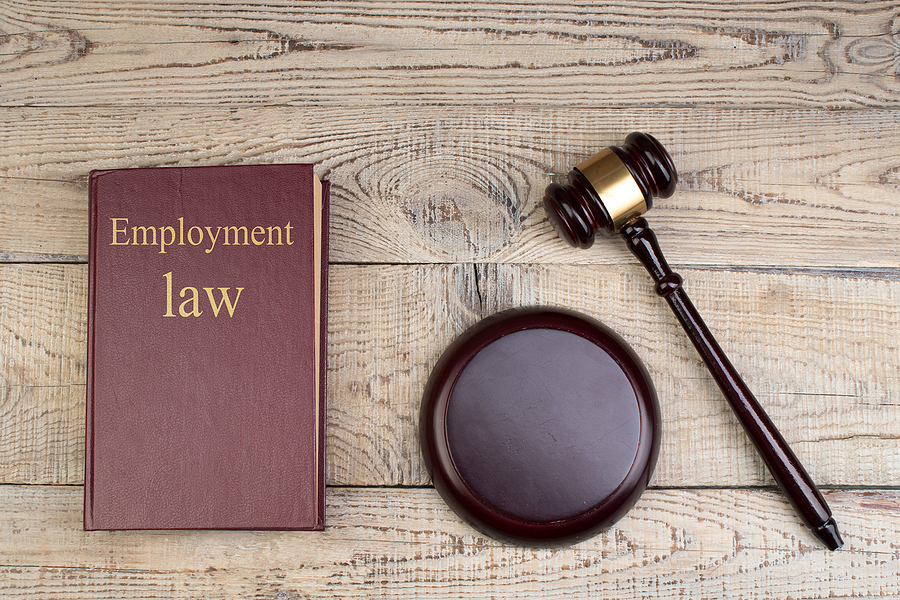
As someone who grew up in the 1980s, I’ve really enjoyed binge-watching the first three seasons of Cobra Kai on Netflix. The show chronicles the present-day lives of two of the main characters from the original 1984 Karate Kid movie, Johnny Lawrence and Daniel Larusso.
What does this have to do with investigations? Johnny Lawrence’s story highlights a relatively recent employment law that employers need to know about.
What Cobra Kai Gets Wrong About Employment Law
Johnny Lawrence is a compelling character, and his evolution from the original movie’s bully to the hero, albeit flawed, in the current series really drew me in. Although Johnny does grow as a person throughout the episodes, he is still hopelessly stuck in the 1980s, which is where a lot of the show’s humor and nostalgic value comes from. Johnny drives a Pontiac Firebird and listens to heavy metal. He does not know how to use a computer. He does not understand how Facebook works. Most importantly, he doesn’t know his rights under California’s Fair Chance Act!
In the third season of Cobra Kai, Johnny interviews for a job. The interviewer notes that Johnny did not fill out the application section on prior arrests” and convinces Johnny to tell him about his arrest history. Johnny complies and, of course, does not get the job.
If Johnny knew about California’s Fair Chance Act, which took effect on January 1, 2018, he would have known that it is illegal (with a few exceptions) for California employers to ask about or consider arrests, except for currently open cases, when making employment decisions. An employer may only ask about convictions—after a conditional offer of employment is made.
Currently, 36 states and more than 150 municipalities have some type of similar law.
‘Ban the Box’ Laws
The Fair Chance Act is a “Ban the Box” law. These laws prohibit employers from asking prospective employees about criminal records on employment applications and may dictate when in the hiring process an employer may conduct a criminal record check. The intent is to prevent employers from automatically disqualifying otherwise-qualified job candidates simply for having a criminal history. If former criminals are discriminated against, and not given an opportunity to re-enter the workforce, they are at risk of being chronically unemployed or re-engaging in criminal activity.
Make sure you know if there’s a similar law in any areas where you do business. Because new “ban the box” laws are regularly being implemented and existing ones are evolving, it’s important to monitor these changes and stay up to date.
For example, the New York City Fair Chance Act was recently amended. Now, New York City employers can only request and review the criminal history of employment candidates after evaluating a candidate’s non-criminal information and extending an offer of employment. This has effectively turned background checks in New York City into a (potentially longer) two-step process.
How to Avoid Violations
Take these steps to avoid running afoul of “ban the box” laws:
- Regularly consult with your employment attorney to ensure that you are compliant with the most recent local “ban the box” laws. Double-check what to do if your company hires people in multiple jurisdictions or if you operate in a jurisdiction where you are subject to both state and local “ban the box” regulations.
- Carefully review your hiring practices to determine what criminal history and other information are necessary and relevant for your open job position(s). Have clear, justifiable, consistent guidelines for what types of criminal offenses would disqualify a candidate and retain hiring records. Some jurisdictions, such as New York City, make it mandatory for an employer to disclose the analysis used in disqualifying a job candidate. Even if your jurisdiction doesn’t require such disclosure, document everything in writing. Hopefully, you’ll never need it, but if you do ,you’ll be glad you have it.
- Partner with a background screening firm capable of providing you with the quality and depth of information necessary to make sound hiring decisions. Also, make sure your background screening partner is well versed in the Fair Credit Reporting Act (FCRA) and other local regulations. It’s your responsibility to ensure that the firm only reports criminal record information to you in accordance with the law. If the law is broken, the liability falls on your firm.












